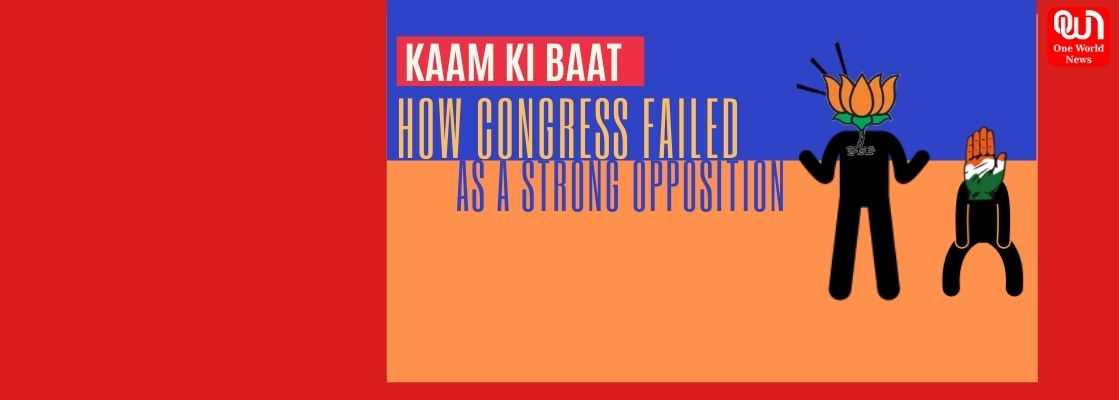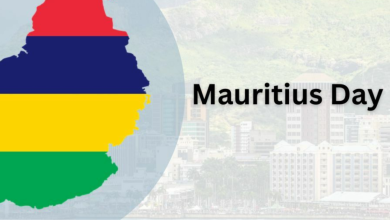How failure of Congress as a strong opposition has weakened democracy

Explained: Instances when Congress was unable to halt the government in amending laws
After the loss of Bihar elections, the crisis in congress has grown two-fold. Congress senior leader Kapil Sibbal lashed out at the high command over the dismal performance of Congress in the state. Congress veteran from Bihar Tariq Anwar blamed the efforts of Congress leaders in the Bihar election. Earlier, a group of 23 prominent Congress leaders had written a letter to the President of Congress, Sonia Gandhi and asked for organizational changes and change in leadership.
Congress as the opposition has reached a point, where we could easily say that the opposition is incompetent. In a democracy, the role of the opposition is as important as the role of the governing party. The opposition has time and again contributed to the policymaking process of the Indian government.
https://www.instagram.com/p/CIAR1ewBw6W/
Why strong opposition is needed?
Opposition plays the role of asking questions to the government during lawmaking or when the government proposes an ordinance. It also acts as a watchdog which ensures that the government doesn’t pass any bills arbitrarily and impose its hegemony. It keeps alive the scope of debate, discussion, and alteration in the bills and the future of the country.
The country has seen spectacular opposition leaders like Shushma Swaraj, LK Advani, Shanta Kumar and others. The opposition parties put forth relevant apprehensions against the proposed policy by the government in the centre or in the state. The leader of the opposition becomes the face and voice of the opposition. However, the lack of opposition leaders has put the effectiveness and efficiency of this system at crossroads today.
Congress has governed India for around 60 years, which means there has been very little space for them to be in the opposition. That’s why they have not been able to become fluent in the tactics of becoming a revolutionary opposition party in the parliament. Congress still seems to be grappling with the issues of becoming a strong opposition party. When BJP was in the opposition, it was effective in questioning the government and holding it accountable and proved itself a smart and efficient opposition.
Read more: Selective approach of the Supreme Court in Arnab’s case
https://www.instagram.com/p/CIATdOxhUCv/
Fall of Congress
After losing two consecutive general elections by big margins, Congress which has just 52 seats in the Lok Sabha indicated at a weakened state of opposition. 2019 election was fought without an opposition face. Once, Rahul Gandhi lost the election, he resigned from the post of President by taking the responsibility of the loss. Congress which was already weak further lost its way. Sonia Gandhi was brought in as interim chief, but she is too old to hold rallies and meet people on grounds.
How weak opposition has impacted India?
The opposition has not been able to stop the government in amending the Constitution to the approval of some controversial bills. Even when it did, it was not enough. Aimless and directionless, the opposition seems to have forgotten its role these days. The BJP government made several landmark decisions but Congress was not able to put opposing views in the public sphere effectively.
When Congress failed as opposition
The abrogation and revocation of Article 370, which gave special status to Jammu and Kashmir made a huge stir on the streets, but in Parliament, the opposition was too weak to argue it out. The opposition was not able to offer any notable argument at the matter of hand which could allow other opposition parties to vote against it.
The BJP government had also amended the Sedition law which claimed that any citizen who is assumed to be indulged or indulging in any anti-national activity can be booked under the sedition law. A person being assumed to be involved in any anti-national activity without any evidence can be charged under the law. The opposition failed to offer an argument against the amendment and ultimately, the sedition law was amended.
Congress has not just failed to give a new direction to the historical outfit and its cause, but it has also failed to find an agenda against the current government. The GST bill, which was conceived by Atal Bihari Vajpayee 1999, proposed by Dr Manmohan Singh in 2006. saw a strong argument by BJP leaders. This resistance helped the opposition not to pass the bill. However, during the tenure of Arun Jaitley as the finance minister, the GST bill was passed in 2017. The weak opposition was again not able to show resistance and showed the inability to keep the government in check.
Recently, there has been a lot of talk about coronavirus. The Prime Minister had urged the citizens to donate to the PM Cares Fund, set up to fight against COVID-19. Many celebrities, corporates, common people donated to the fund. Government employees were made to make an involuntary contribution as a part of their salary was deducted. However, in a surprising move, the accountability of the PM CARES Fund was pulled off by the government. The Fund was taken off the Right To Information Act, which made the government answerable on the usage of the fund.
Very few from the opposition questioned the move in the public domain. This shows the incompetence of opposition to play its role in democracy. The opposition needs to be alert in all situation and should pose apprehensions, when issues related to the public is discussed. But due to lack of strength, the opposition was not able to question the government.
Read more such articles on oneworldnews.com
A weak opposition has its implications on foreign policy
There were several reports of China capturing the lands of India near the Ladakh border across Line of Actual Control. Even, a deadly brawl took place which claimed the lives of 20 brave soldiers near the Galwan valley. The opposition was so paralysed that it didn’t engage in political mobilization on a highly sensitive issue, the loss of territory. What we need to understand is that implication of weak opposition is not limited to internal affairs, it also affects the foreign policy of the nation.
When Rajeev Gandhi came to power in 1984, after his mother, Indira Gandhi was assassinated, Congress won by a huge margin. The opposition was in complete disarray. This made Rajeev Gandhi take a disastrous decision of intervention in Sri Lanka. By the time the decision was reversed, we had lost 1,200 soldiers. The Jawaharlal Nehru government was also very strong. The opposition was not able to stop him from making mistakes in the China strategy which ended in a war with China in 1962.
The Indian government backed out of RCEP, a free trade partnership of 16 countries, but the opposition was silent. S Jaishankar said that India’s concerns were not addressed in the RCEP trade deal, so India backed out of it. How India, being the fifth largest economy of the world, biggest consumer across the world with 130 crore population was not able to influence the RCEP? Doesn’t it show the incompetence of Indian diplomacy? But no questions were asked by the opposition.
A lack of strong opposition makes the government dictatorial, authoritarian, and arbitrary. We need a strong opposition so that democracy is intact in the country and the government can be held accountable for its decisions. But the present scenario is not assuring. We don’t just lack an opposition face in the Parliament, one alternate leader is also missing in the Public domain who could challenge PM Modi. The lack of a strong face in the centre has allowed the government to be more powerful than earlier.
Have a news story, an interesting write-up or simply a suggestion? Write to us at info@oneworldnews.com







